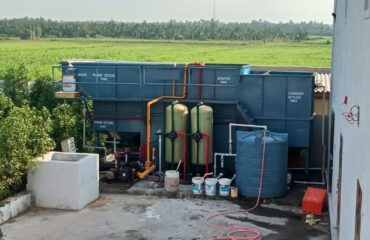Introduction
Bhiwadi, a thriving industrial hub in Rajasthan, is experiencing rapid economic growth. However, with this growth comes the challenge of managing industrial and domestic wastewater responsibly. The establishment of an Effluent Treatment Plant (ETP) in Bhiwadi is a crucial step towards achieving sustainable waste management and environmental preservation.
The Role of ETPs
An Effluent Treatment Plant (ETP) plays a pivotal role in treating wastewater generated by industries and residential areas. Its primary objective is to remove pollutants and contaminants from the wastewater before it is discharged into water bodies or the environment, ensuring compliance with environmental regulations and protecting public health.
Advantages of ETPs in Bhiwadi
1. Environmental Conservation
Bhiwadi’s ecosystem, including nearby water bodies and agricultural lands, can be adversely affected by untreated wastewater. ETPs help mitigate this impact by ensuring that harmful pollutants are removed from the wastewater before it enters the environment.
2. Health and Safety
Untreated wastewater poses a risk to public health, as it can contain disease-causing pathogens and toxic substances. ETPs safeguard the well-being of residents by treating wastewater to a level where it is safe for release or reuse.
3. Regulatory Compliance
Stringent environmental regulations mandate the treatment of industrial wastewater before disposal. ETPs enable industries in Bhiwadi to adhere to these regulations, avoiding penalties and contributing to responsible waste management practices.
4. Resource Conservation
Treated wastewater from ETPs can be reused for non-potable purposes such as irrigation, cooling, and industrial processes. This reduces the strain on freshwater resources and supports sustainable water management in Bhiwadi.
Key Components of ETPs
- Screening and Grit Removal: Preliminary treatment involves removing large debris and grit from the wastewater to protect downstream equipment.
- Primary Treatment: Suspended solids are allowed to settle in primary sedimentation tanks, reducing the load on subsequent treatment processes.
- Secondary Treatment: Microorganisms are used to biologically break down organic matter in the wastewater, converting it into harmless byproducts.
- Tertiary Treatment: Advanced techniques like filtration, chemical coagulation, and disinfection further improve water quality.
- Effluent Disposal or Reuse: Treated water can be safely released into water bodies or reused for various non-potable applications.
Challenges and Solutions
- Industrial Collaboration: Effective collaboration between industries and local authorities can lead to innovative waste management solutions, reducing the impact of industrial effluents.
- Awareness and Education: Raising awareness among residents about the importance of proper waste disposal and the role of ETPs can foster a culture of responsible wastewater management.
- Continuous Monitoring: Implementing regular monitoring and maintenance of ETPs ensures their optimal performance and adherence to quality standards.
Conclusion
The establishment of an Effluent Treatment Plant in Bhiwadi is a testament to the city’s commitment to sustainable development and environmental stewardship. ETPs not only ensure cleaner and safer water resources but also contribute to the overall well-being and prosperity of the community. By investing in effective wastewater treatment, Bhiwadi sets an example for other growing industrial centers to follow.





